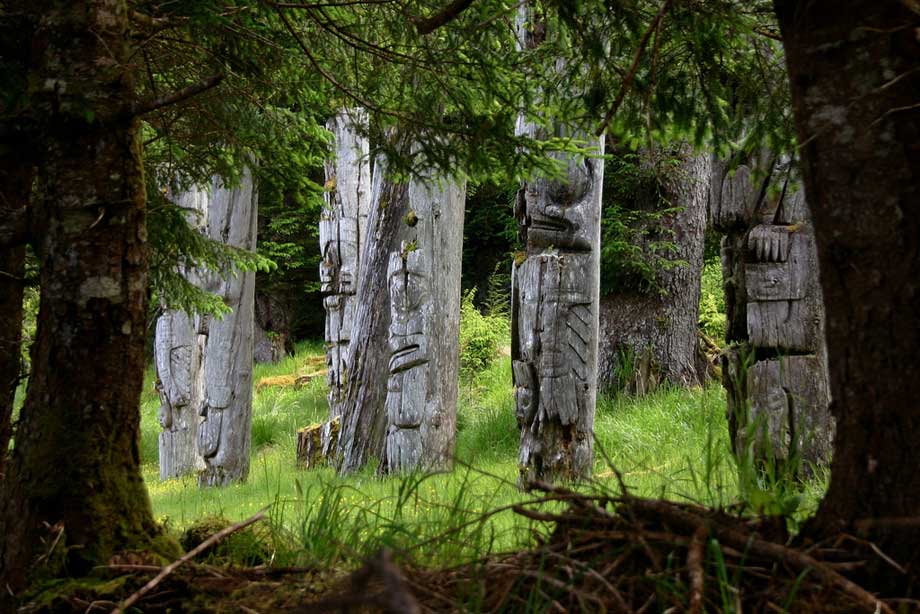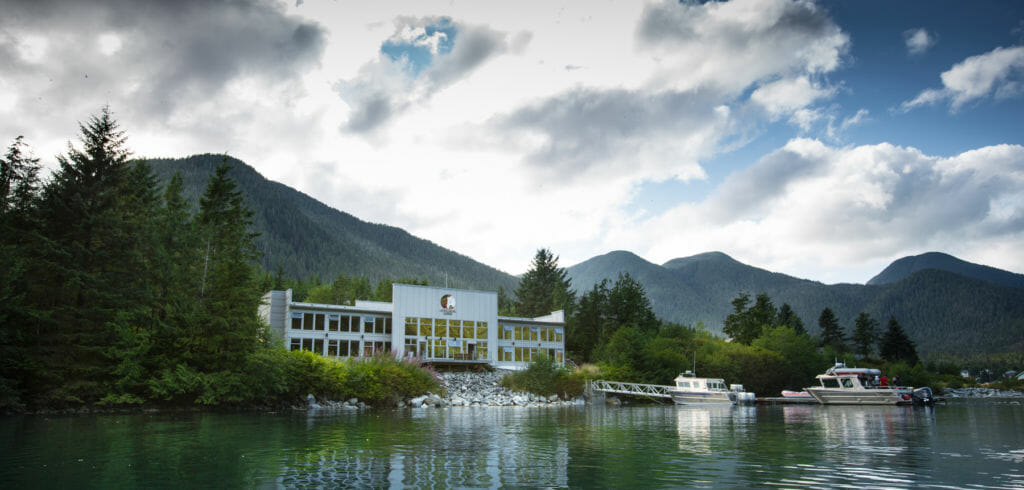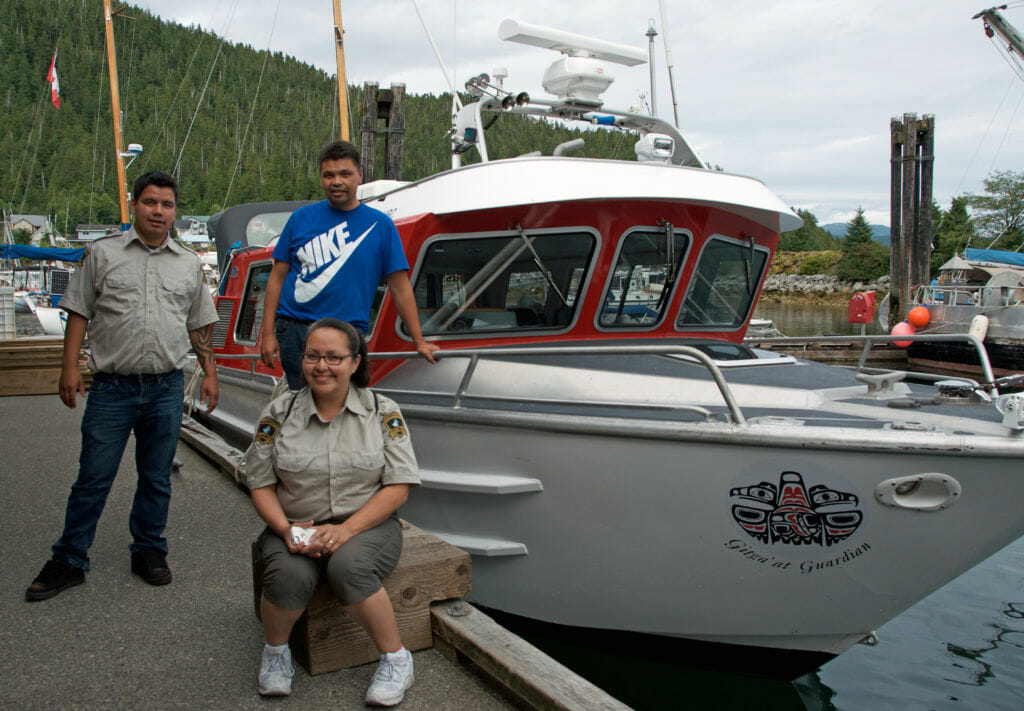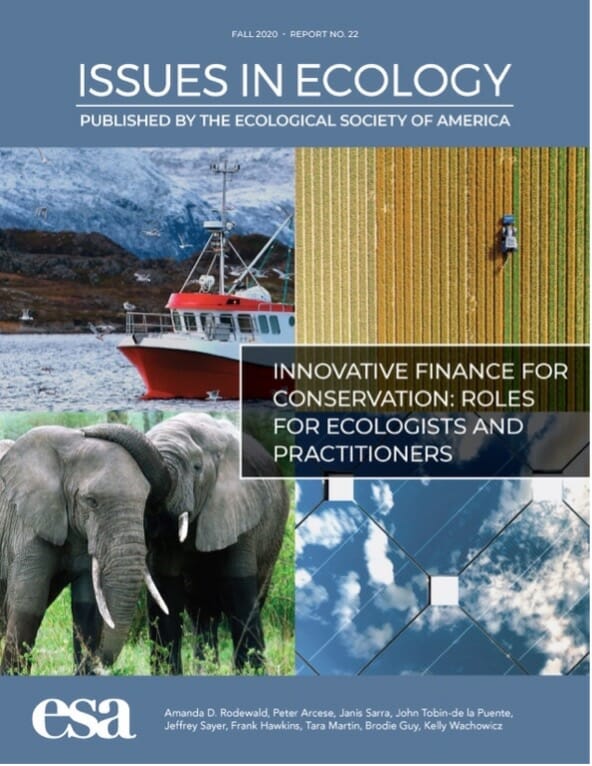Estimated Reading time

4 Mins
Academic Publication Highlights Need for Indigenous Leadership in Conservation Finance

The Ecological Society of America (ESA) has published its latest issue of Issues in Ecology entitled “Innovative Finance for Conservation: Roles for Ecologists and Practitioners.” that offers guidelines for developing standardized, ethical and effective conservation finance projects.
Coast Funds’ CEO Brodie Guy co-authored the paper along with Amanda D. Rodewald (lead author), Peter Arcese, Janis Sarra, John Tobin-de la Puente, Jeffrey Sayer, Frank Hawkins, Tara Martin, and Kelly Wachowicz.
First Nations and Coast Funds are featured in the paper, demonstrating how Indigenous leadership and partnerships can and must ameliorate global shortfalls in conservation and provide innovation in conservation finance.
Private Investment a New Path Forward to Conserving Biodiversity
Issues in Ecology (No. 22) explores how public and philanthropic sources—such as those that established Coast Funds—currently supply most of the funds for protecting and conserving species and ecosystems. However, the private sector is now driving demand for market-based mechanisms that support conservation projects with positive environmental, social and financial returns.
“The reality is that public and philanthropic funds are insufficient to meet the challenge to conserve the world’s biodiversity,” said Garvin Professor and Senior Director of Conservation Science at Cornell University Amanda Rodewald, the lead author. “Private investments represent a new path forward both because of their enormous growth potential and their ability to be flexibly adapted to a wide variety of social and ecological contexts.”
Many of the most promising conservation finance models remain under-funded or largely aspirational, says the report. In fact, only 12–17% of the $300–$400 billion of investment needed annually to maintain healthy ecosystems globally currently flows to conservation finance.
Those numbers contrast with the amount of capital available to invest globally. Institutional investors and other asset managers have more than $175 trillion in assets under management that are being invested in economic activity globally, and many demand socially responsible investments. Current trends suggest that conservation finance has enormous potential for growth and could represent a turning point in global approaches to biodiversity conservation.
Coast Funds Responds to First Nations’ Conservation Finance Requirements

The findings in the publication reflect and support Coast Funds’ strategic decision (following extensive conversation with First Nations governments and leadership) to evolve in order to continue offering valued services while increasing First Nations’ access to stable, self-determined stewardship finance.
First Nations’ investments through Coast Funds plays an integral role in supporting the development and operations of First Nations stewardship and economic development efforts, as demonstrated by the Coast Funds examples provided in the ESA publication. The case study examines the Gitga’at Oceans and Lands Department, and the Kitasoo/Xai’xais First Nation’s Spirit Bear Lodge.
In the case of Gitga’at First Nation, the Nation’s investments through Coast Funds have been a catalyst, financing the start-up and operational funds of the Nation’s government to apply Indigenous knowledge in resource management, implement land use plans, and monitor oil tanker traffic, sport fishers, and illegal activity. Gitga’at First Nation’s investments have substantially enhanced human well-being, leading to 7 co-management plans with the colonial government for new protected areas, focal species research, training, jobs, and millions invested in local family-supporting salaries.

In 2000, the Kitasoo/Xai’xais Nation identified ecotourism as a non-extractive economic opportunity that could help protect their territory. Through their Coast Funds investments, Kitasoo/Xai’xais invested over CA$1 million into the startup and expansion of this globally renowned ecotourism venture. The investment in Spirit Bear Lodge has forged a novel approach where the Kitasoo/Xai’xais people are strengthening Indigenous well-being and economic prosperity in a non-extractive manner that has been scientifically vetted in peer-reviewed studies to sustain, protect, and enhance highly biodiverse marine areas and the last undeveloped watersheds of Earth’s largest remaining coastal temperate rainforest. Such activities have enabled these Indigenous People to expand their role in stewardship, protect visual corridors of old-growth rainforests from destruction, educate visitors, and facilitate research. The economic outcomes of the lodge are substantial, by employing more than 10% of the community, with prominent inclusion of both women and youth.
Read Issues in Ecology here: Innovative Finance for Conservation: Roles for Ecologists and Practitioners.
Authors:
- Amanda D. Rodewald, Cornell Lab of Ornithology, Ithaca, NY; Department of Natural Resources, Cornell University, Ithaca, NY
- Peter Arcese, Department of Forest and Conservation Sciences, University of British Columbia, Vancouver, BC; Department of Natural Resources, Cornell University, Ithaca, NY
- Janis Sarra, Peter A. Allard School of Law, University of British Columbia, Vancouver, BC
- John Tobin-de la Puente, Charles H. Dyson School of Applied Economics and Management, Cornell University, Ithaca, NY; Cornell Institute for Public Affairs, Cornell University, Ithaca, NY
- Jeffrey Sayer, Department of Forest and Conservation Sciences, University of British Columbia, Vancouver, BC
- Frank Hawkins, International Union for Conservation of Nature (IUCN), Washington, DC
- Tara Martin, Department of Forest and Conservation Sciences, University of British Columbia, Vancouver, BC
- Brodie Guy, Coast Funds, Vancouver, BC
- Kelly Wachowicz, Catch Together, Chatham, MA
Issues in Ecology is an official publication of the Ecological Society of America, using commonly-understood language to report the consensus of a panel of scientific experts on issues related to the environment. Issues in Ecology aims to build public understanding of the importance of the products and services provided by the environment to society. The text for every Issues in Ecology is reviewed for technical content by external expert reviewers. https://www.esa.org/esa/science/issues/

